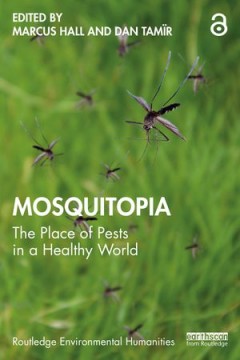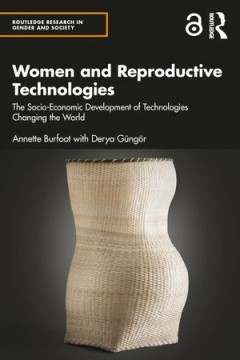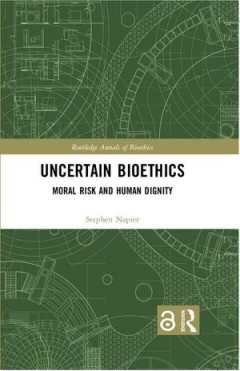Filter by

Vermin, Victims and Disease : British Debates over Bovine Tuberculosis and Ba…
This open access book provides the first critical history of the controversy over whether to cull wild badgers to control the spread of bovine tuberculosis (bTB) in British cattle. This question has plagued several professional generations of politicians, policymakers, experts and campaigners since the early 1970s. Questions of what is known, who knows, who cares, who to trust and what to do ab…
- Edition
- 1
- ISBN/ISSN
- 9783030191863
- Collation
- XXIV, 366 hlm,: ill, lamp; 21 cm
- Series Title
- -
- Call Number
- -

Special Topics in Information Technology
This open access book presents outstanding doctoral dissertations in Information Technology from the Department of Electronics, Information and Bioengineering, Politecnico di Milano, Italy. Information Technology has always been highly interdisciplinary, as many aspects have to be considered in IT systems. The doctoral studies program in IT at Politecnico di Milano emphasizes this interdiscipli…
- Edition
- 1
- ISBN/ISSN
- 978-3-031-15374-7
- Collation
- VIII, 152
- Series Title
- SpringerBriefs in Applied Sciences and Technology
- Call Number
- 620 SPE

Cognitive Supervision for Robot-Assisted Minimally Invasive Laser Surgery
This thesis lays the groundwork for the automatic supervision of the laser incision process, which aims to complement surgeons’ perception of the state of tissues and enhance their control over laser incisions. The research problem is formulated as the estimation of variables that are representative of the state of tissues during laser cutting. Prior research in this area leveraged numerical …
- Edition
- -
- ISBN/ISSN
- 978-3-319-30330-7
- Collation
- XIX, 99
- Series Title
- Springer Theses (Springer Theses)
- Call Number
- 660

Principles and Practice of Case-based Clinical Reasoning Education: A Method …
his book is open access under a CC BY 4.0 license. This volume describes and explains the educational method of Case-Based Clinical Reasoning (CBCR) used successfully in medical schools to prepare students to think like doctors before they enter the clinical arena and become engaged in patient care. Although this approach poses the paradoxical problem of a lack of clinical experience that…
- Edition
- 1
- ISBN/ISSN
- 9783319648286
- Collation
- X, 207
- Series Title
- -
- Call Number
- -

Mosquitopia : The Place of Pests in a Healthy World
This edited volume brings together natural scientists, social scientists and humanists to assess if (or how) we may begin to coexist harmoniously with the mosquito. The mosquito is humanity’s deadliest animal, killing over a million people each year by transmitting malaria, yellow fever, Zika and several other diseases. Yet of the 3,500 species of mosquito on Earth, only a few dozen of them a…
- Edition
- -
- ISBN/ISSN
- 9781003056034
- Collation
- -
- Series Title
- -
- Call Number
- -

Women and Reproductive Technologies : The Socio-Economic Development of Techn…
A sociological and historical study of the development of reproductive technologies, this book focuses on key technological developments through a biomedicalization lens with special attention to gender. Using in vitro fertilization (IVF) as a hub, it critically examines the main areas of related socio-technical developments: reproductive science, birth control, animal husbandry, genetics and r…
- Edition
- -
- ISBN/ISSN
- 9780429467646
- Collation
- -
- Series Title
- -
- Call Number
- -

Bioethics and the Holocaust
This open access book offers a framework for understanding how the Holocaust has shaped and continues to shape medical ethics, health policy, and questions related to human rights around the world. The field of bioethics continues to face questions of social and medical controversy that have their roots in the lessons of the Holocaust, such as debates over beginning-of-life and medical genetics…
- Edition
- 1
- ISBN/ISSN
- 978-3-031-01987-6
- Collation
- -
- Series Title
- The International Library of Bioethics
- Call Number
- XII, 323

Uncertain Bioethics : Moral Risk and Human Dignity
Uncertain Bioethics makes a significant and distinctive contribution to the bioethics literature by culling the insights from contemporary moral psychology to highlight the epistemic pitfalls and distorting influences on our apprehension of value. Stephen Napier also incorporates research from epistemology addressing pragmatic encroachment and the significance of peer disagreement to justify wh…
- Edition
- -
- ISBN/ISSN
- 9781351244510
- Collation
- -
- Series Title
- -
- Call Number
- -

Persuasion and legal reasoning in the ECtHR Rulings: balancing impossible dem…
Introduction 1 Challenges of judicial reasoning in beginning and end-of-life cases 2 Ways of judicial reasoning ⁰́₃ outline 3 Ways of reasoning in medically assisted procreation and surrogacy cases 4 Ways of reasoning in abortion cases 5 Ways of reasoning in end-of
- Edition
- -
- ISBN/ISSN
- 9781003375999
- Collation
- -
- Series Title
- -
- Call Number
- -

Developing modern livestock production in tropical countries: proceedings of …
Animal production Animal nutritionAnimal reproduction and breedingAnimal product and agribusinessLivestock engineering
- Edition
- -
- ISBN/ISSN
- 9781003370048
- Collation
- -
- Series Title
- -
- Call Number
- -
 Computer Science, Information & General Works
Computer Science, Information & General Works  Philosophy & Psychology
Philosophy & Psychology  Religion
Religion  Social Sciences
Social Sciences  Language
Language  Pure Science
Pure Science  Applied Sciences
Applied Sciences  Art & Recreation
Art & Recreation  Literature
Literature  History & Geography
History & Geography